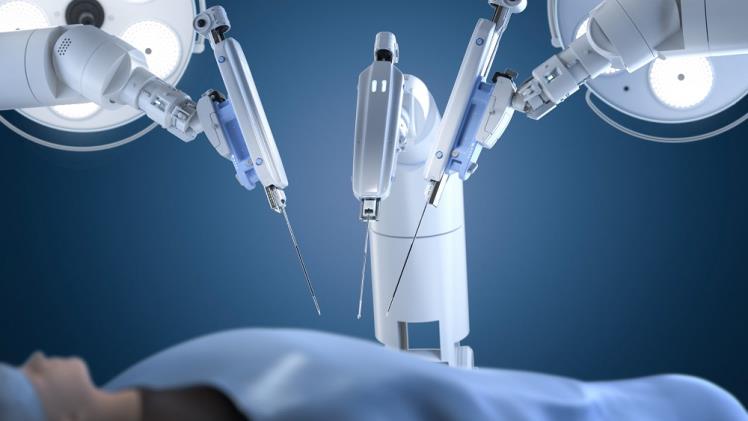
You may be recommended robotic prostate surgery in Singapore if you have a confirmed diagnosis of prostate cancer. Also, it may be recommended if you prefer a minimally invasive option and would want to preserve your urinary and sexual function as much as possible.
Usually, this procedure is preferred when tests show the cancer is confined to the prostate gland. Since it is robotic, it lets surgeons remove the gland precisely, with small incisions.
Robotic prostate surgery may also be ideal if you’re not fit for major surgery. Surgery offers the best chance to remove all cancer before it spreads.
As is the case with any surgical procedure, this procedure isn’t entirely risk-free. This guide explains the potential long-term effects of robotic prostate surgery. But first;
What is Robotic Prostate Surgery?
Robotic prostate surgery is also often called robot-assisted prostatectomy. It is a specialised surgical procedure for removing the prostate gland using robotic tools.
During the procedure, your surgeon sits at a console and guides tiny instruments into your body through small cuts. High-definition 3D cameras give a close view of delicate structures, including nerves and blood vessels.
The robot filters out any hand tremors and scales your movements, so the cuts are more precise than those in open surgery. This precision helps surgeons spare as many nerves as possible, which is vital for preserving functions like erection and bladder control.
Because incisions are small, you usually feel less pain afterwards. Hospitals often offer this option for early-stage prostate cancer, when the tumor remains within your prostate.
However, you still need to discuss with your doctor whether this approach suits your health, cancer stage and overall goals. And that brings us to the next issue;
Who is a Candidate for Robotic Prostate Surgery?
Not every man with prostate issues fits the criteria for robotic prostate surgery. To avoid undesired outcomes, a good prostate cancer specialist will only give you the nod to proceed with a robotic prostate surgery if you’re a good candidate. You may be considered a candidate for robotic prostate surgery if;
- You have early-stage prostate cancer: This means your cancer sits only in the prostate and has not spread often qualify. Imaging scans and biopsies may be used to confirm that the disease remains localised.
- You have good general health: You need to tolerate anaesthesia and surgery well. That said, the doctors will assess your heart, lung and kidney function before approving you. If you have serious heart or lung disease, they may suggest other treatments first.
- Life expectancy over ten years: Prostate cancer often grows slowly. So, surgeons generally reserve major surgery for men expected to live long enough to benefit. If life expectancy is shorter due to other conditions, you may be recommended radiation or hormone therapy.
- No severe obesity: A very high body mass index can make robotic access harder and lengthen surgery time. Because of this, clinics often set BMI limits or recommend weight loss before surgery. Reducing weight lowers surgical risks and also helps with recovery.
- Desire for nerve preservation: If maintaining sexual and urinary function is a priority, robotic prostate surgery may be preferred. Surgeons use nerve-sparing techniques when cancer location allows. You’ll discuss these aims in detail during your pre-surgery consultation.
What are the Benefits of Robotic Prostate Surgery?
One of the primary questions you may want to ask about robotic prostate surgery is; what are the benefits? The first one is shorter hospital stays.
Because the incisions are small, you often leave hospital sooner. Many men go home in one to two days rather than three to five.
The best thing with shorter stays is that they lower your risk of hospital-acquired infections and let you recover in the comfort of home. Another notable benefit of robotic prostate surgery is less blood loss.
Robotic tools allow surgeons to operate with millimetre precision, which cuts fewer blood vessels. You may lose only a few millilitres of blood compared to several hundred in open surgery.
Reduced blood loss means you rarely need a transfusion. As you’d imagine, this can speed your overall recovery.
It is also worth mentioning that robotic prostate surgery comes with less pain. Smaller cuts irritate fewer nerves and muscles, so you feel less discomfort after surgery. Many men need only mild pain relief like paracetamol or ibuprofen.
What are the Long-Term Effects of Robotic Prostate Surgery?
Robotic prostate surgery isn’t entirely risk-free. So, before your treatment you might want to ask, what are the long-term effects of robotic prostate surgery? Here are the two most common long-term effects you may face after robotic prostate surgery:
- Erectile dysfunction (ED): ED means you cannot get or keep an erection firm enough for sexual activity. After prostatectomy, erectile function depends on your age, sexual health before surgery and whether the nerves were preserved. Surgeons use nerve-sparing techniques during robotic prostate surgery to protect these delicate nerves unless cancer invades them. Younger men in good sexual health tend to recover erections faster and more fully. However, even with nerve preservation, you may need months to regain function and might use medications or devices to help.
- Urinary incontinence (UI): UI means you leak urine unexpectedly. After removing the prostate, some men have weak bladder control at first. This happens because the muscle and nerve connections around your bladder change during surgery. In most cases, bladder control improves gradually over time, often returning to near-normal within six to twelve months. Pelvic floor exercises and bladder training speed recovery, and your care team will guide you. A small number of men need extra therapies, like sling procedures, if leaks persist long term.
Wrapping Up
Robotic prostate surgery brings many benefits while aiming to treat localised prostate cancer effectively. However, it isn’t entirely risk free and you need to prepare for possible long-term effects, chiefly erectile dysfunction and urinary incontinence.
Talk openly with your care team about your priorities and concerns to set yourself up for the best possible outcome. They will design a plan to protect your function and guide you through rehab.
If you’re in Singapore and wish to learn if robotic prostate surgery suits you, book a consultation with us today and get expert advice on treatment options, risks and recovery plans tailored to your needs. Call or visit us at;
Allen Sim Urology



